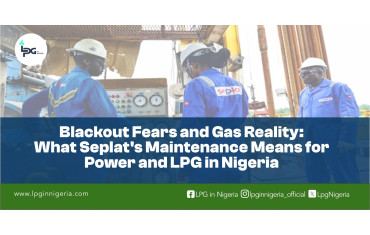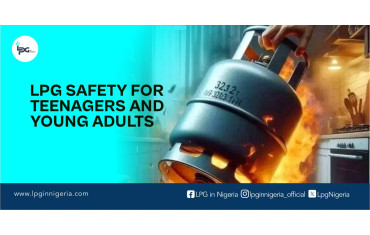- 4888
- 0
Sharing Ideas and Updates on LPG in Nigeria and related information to enable effective collaboration within the LPG Value Chain
Combating Deforestation In Africa: The Role Of LPG

Deforestation stands as a critical environmental concern in Africa, carrying extensive ecological and socio-economic repercussions. It imperils biodiversity, exacerbates climate change, and jeopardizes the livelihoods of countless individuals reliant on forests for their sustenance. This widespread issue involves the clearance of forests for various purposes, including agriculture, cattle grazing, and logging, making it a major predicament across the continent. Astonishingly, Africa loses a staggering 3.6 million hectares of forest annually, propelled by an array of factors such as population growth, poverty, and the impacts of climate change.
Yet, amid these concerning statistics, a glimmer of hope emerges in the form of Liquefied Petroleum Gas (LPG). In this blog post, we delve into the intricate problem of deforestation in Africa and delve into the transformative potential of LPG as a powerful tool in addressing this urgent concern.
The Deforestation Challenge in Africa.
Africa is home to some of the world's most biodiverse forests, ranging from the dense rainforests of Central Africa to the savannas and woodlands of East and Southern Africa. However, deforestation rates on the continent have been alarmingly high. Here are some of the key drivers and consequences of deforestation in Africa:
Agricultural Expansion: One of the primary drivers of deforestation is the conversion of forests into agricultural lands to meet the growing food demand of a rapidly increasing population.
Fuelwood and Charcoal Production: Millions of Africans rely on wood and charcoal as their primary sources of energy for cooking and heating. Unsustainable harvesting of trees for fuelwood and charcoal production is a major contributor to deforestation.
Illegal Logging: Illicit logging practices continue to threaten forests, often driven by international demand for valuable timber species.
Climate Change: Deforestation contributes to climate change by releasing carbon dioxide into the atmosphere and reducing the capacity of forests to absorb carbon.
Biodiversity Loss: Forests are vital for biodiversity, and their destruction leads to the loss of numerous plant and animal species.
LPG as a Sustainable Alternative
Liquefied Petroleum Gas (LPG) is a versatile and clean-burning fuel that can play a significant role in mitigating the drivers of deforestation in Africa:
Clean Cooking Fuel: LPG can replace traditional biomass fuels like wood and charcoal for cooking and heating. Its use reduces indoor air pollution, improves health outcomes, and decreases the demand for fuelwood, thereby reducing deforestation.
Efficient Energy Source: LPG stoves are highly efficient, requiring less fuel to produce the same amount of heat as traditional stoves. This means fewer trees need to be cut down for energy purposes.
Income Generation: By promoting the adoption of LPG for cooking, governments and organizations can support local economies by creating jobs in the LPG distribution and maintenance sectors.
Reduced Greenhouse Gas Emissions: LPG is a cleaner-burning fuel than wood or charcoal, resulting in lower greenhouse gas emissions. This helps combat climate change, which is closely linked to deforestation.
Sustainable Forest Management: The revenue generated from LPG sales can be reinvested in sustainable forest management practices, such as reforestation and conservation efforts.
Challenges and Considerations
While LPG offers promising solutions for combating deforestation in Africa, there are some challenges and considerations to address:
Accessibility: Ensuring access to LPG for rural and marginalized communities is essential. Infrastructure development and affordability are key factors in expanding LPG usage.
Safety and Education: Promoting safe LPG handling and usage, along with public awareness campaigns, is crucial to prevent accidents and ensure responsible consumption.
Balancing Economic Interests: Policymakers must strike a balance between economic development and forest conservation, addressing the needs of both.
Sustainable Supply Chains: Sustainable sourcing and distribution of LPG are essential to prevent negative environmental impacts associated with its production and transportation.
Deforestation in Africa is a pressing issue with severe consequences for the environment and local communities. Liquefied Petroleum Gas (LPG) presents a sustainable and clean alternative to traditional biomass fuels, offering multiple benefits in the fight against deforestation. By promoting LPG adoption, governments, organizations, and communities can reduce pressure on forests, improve livelihoods, and contribute to a greener and more sustainable future for Africa. It's time to harness the power of LPG as a valuable tool in the battle against deforestation on the continent.
Image Source: Conserve Energy Future.
















0 Comment.